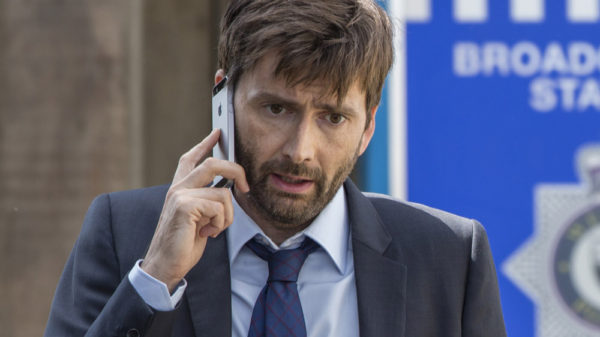On the basis of last night’s episode, Broadchurch has gone beyond a mere crime drama serial to something gut-wrenching, humane and deeply empathetic, rivalling the moving portrayal of grief in its first season four years ago.
2015’s second season was something of a disappointment in the muddled way it portrayed Britain’s legal system and tried to blend Joe Miller’s trial with the Sandbrook case in Alec Hardy’s case.
Season 3’s opener was the polar opposite: taut, focused and emotionally charged. Writer Chris Chibnall has very sensibly chosen to return viewers to the Wessex coast for a brand new storyline that requires no active knowledge of past seasons; a storyline which shocks and engages right from the off.
Two things particularly impress about Chibnall’s approach. The first is leaving words unspoken and scenes unseen. In an age where so much poor TV is sunk by flat, over-earnest dialogue or gratuitous violence, the decision to open with tight, unfussy camerawork framing the bloodied, tear-stained face of Trish Winterman (an outstanding Julie Hesmondhalgh) in the aftermath of a sexual assault speaks volumes.
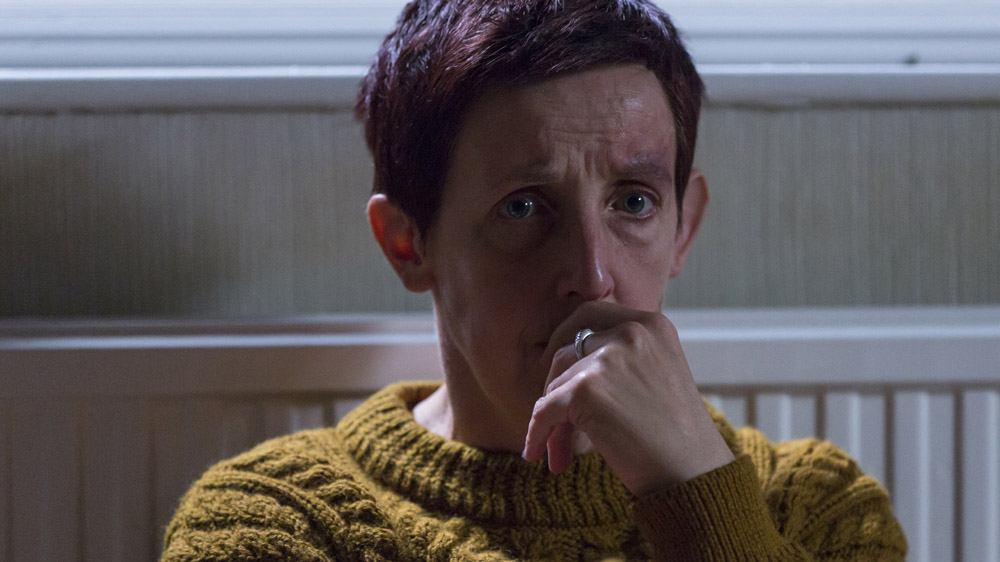
She is not a statistic or a case-of-the-week. She is the focus, the camera tells us.
Chibnall and director Paul Andrew Williams keep us with Trish every step of the way for the first fourteen harrowing minutes, from meeting support workers to police investigation, from the sweet (“we do the mouth swab first – basically so you can have a cup of tea”) to the heart-breaking (that Trish’s first question to the police is “do you believe me?” is both awful and so, so important).
The second point in this episode’s favour is the extent to which it has been so painstakingly researched. It’s common knowledge that Chibnall spent a year talking to Dorset police, particularly those specialising in sexual assault cases, as well as collaborating with advisers, support workers, and charities, many of whom were on set to guide actors through the right decisions.
That he went to such lengths to ensure the story told is accurate – and for making sure a TV representation of such events does right by any real-life victims – is what makes the show stand out.
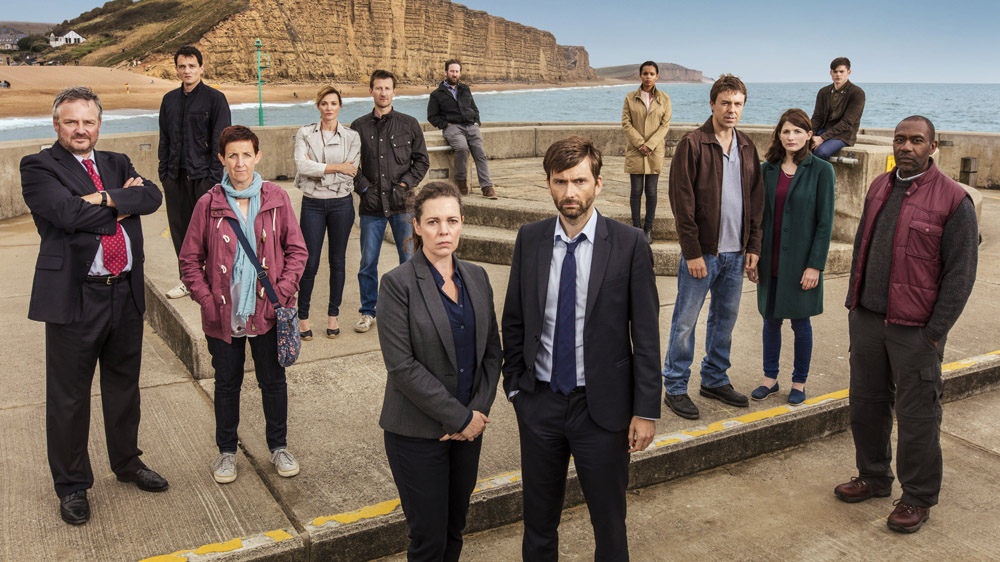
There is not an ounce of glamour or sensationalism to this, not anywhere, and rightfully so. It is painful and sensitive simply to write a review of Broadchurch, let alone the process of making it, let alone the terrible real-life traumas which have informed the storytelling: that all involved have taken so serious and mature an approach is to their credit.
That Trish is telling the truth is – to this viewer, at least – never in doubt. But even only one episode in, the question of whether the police can believe her has already been raised (by Georgina Campbell’s DC Katie Harford), and Trish herself understandably finds giving a full account of events to the police difficult.
As viewers, we find ourselves torn between our emotional sympathy for this woman and our understanding of the information the police need to obtain from her to be able to keep others safe from her attacker.
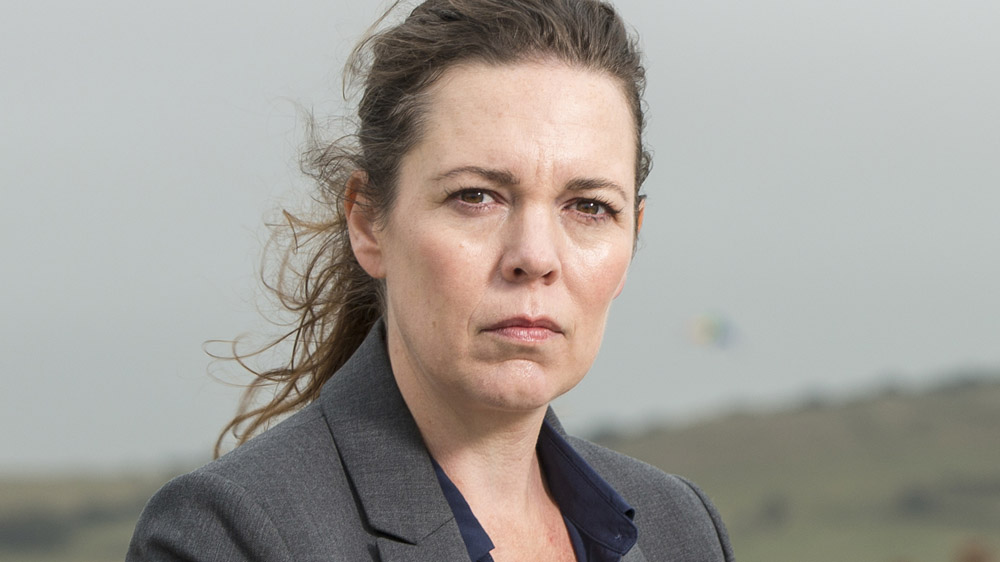
If this season of Broadchurch might develop a potential weakness, it will lie in treating Trish’s ordeal as a tension-fuelled problem for Hardy and Miller to solve, all heart-thumping drumbeat score (the normally-excellent Ólafur Arnalds goes slightly too far here, perhaps) and moody shots of the detectives: a reductive approach of this kind would be disappointing and would detract from the seriousness of the emotional turmoil.
Chibnall would do well to stick on the path he treads so well here, placing Trish front and centre and keeping it her story, however much it’s also about finding the attacker.
The weaker segments of last night’s episode were those that took the focus off Trish and returned to a wider cast of characters – but, in fairness, that level of intensity cannot be maintained for eight episodes long.
I was a tad sceptical about the new status quo of the Latimer family (Beth as trauma advisor, Mark as author of a book about his dead son Danny), but it’s still early days, and the Latimers admittedly work well in paralleling Trish: they’ve been through hell and back, have emerged on the other side of their trauma, irreparably damaged but not alone and still able to keep on living.
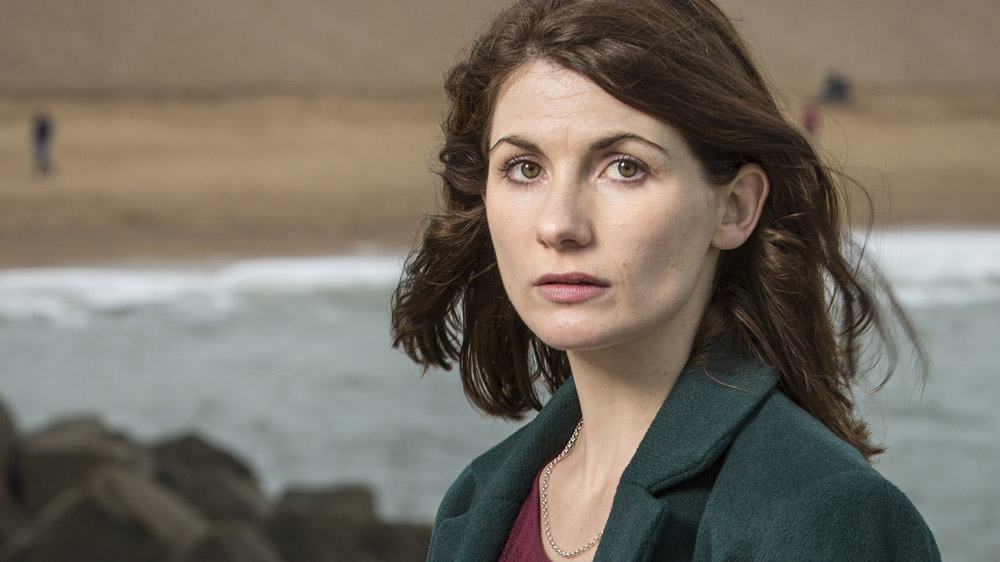
In amid all this praise for the writing, of course, Broadchurch has as ever a stellar set of actors. That David Tennant and Olivia Colman are familiar to us all doesn’t take away from their extraordinary work together on screen as Hardy and Miller; Colman, in particular, is on fire. It is Hesmondhalgh who is the anchor of the show, though, giving an award-worthy performance that will surely be recognised in ceremonies to come.
So far, this season of Broadchurch has an angry, state-of-the-nation quality that previous seasons lacked. Chibnall has spoken openly about the rise in sexual assault cases, about disparity between the genders, and ease of access to pornography and its influence on boys (which also pops up in a minor subplot involving Miller’s son Tom).
Broadchurch 3 feels like an attempt to make victims’ voices heard; to address these ugly themes head-on; and, in making us all more aware of their importance, to act as a force for good – which is as high praise as one can offer television.
Aired at 9pm on Monday 27 February 2017 on ITV.
Buy the Season 1-2 box set on Amazon here.
Order Season 3 on DVD on Amazon here.
What did you think of this week’s episode? Let us know below…

